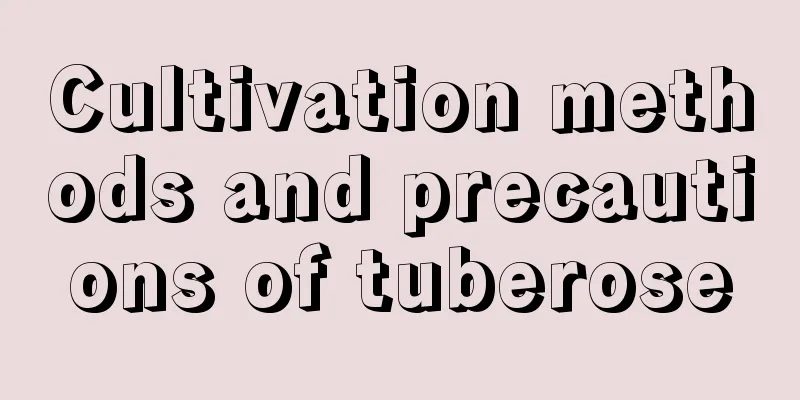What are the cultivation methods and precautions of red plum blossoms?

Introduction of Red Plum BlossomThe red plum blossom is a plant of the Rosaceae family, genus Apricot. The red plum blossom can be propagated by sowing, division, layering, and grafting. The red plum is a type of plum blossom. The plant is about 10 meters tall, with a brown-purple trunk, green twigs, oval leaves, and light pink or red flowers. The cultivated varieties come in purple, red and other colors. Red plum blossom cultivation methodRed plum blossoms prefer warm, sunny environments, have a certain degree of cold resistance, and grow well in areas with an annual rainfall of 1000mm or slightly more. Heavy rains should be avoided during the flowering period. They have a wide adaptability to soil and are relatively resistant to barrenness, making them a long-lived tree species. The potting soil for red plum flowers can be prepared by mixing humus soil, sandy soil, and organic fertilizer. It should be exposed to the sun before use. There are no strict requirements for the amount of sunlight. It can be exposed to bright light, but not exposed to the sun. Attention should be paid to watering. Watering is required according to seasonal changes, and do not water until it is completely dry. Watering methodRed plum blossoms are afraid of waterlogging and cannot tolerate waterlogging environments, so watering should be moderate, not excessive, and not frequent. There is no need to water if the soil in the pot is slightly moist. Fertilization methodIf the red plum blossom is fertilized in time during its growth period, it can grow stronger. Generally, a thin fertilizer should be applied once every half a month or so. Apply thin fertilizer frequently and avoid applying high-concentration fertilizer. Pruning methodsAfter the red plum flowers fade every year, you can trim the withered flowers and shorten the old branches, leaving only 2-3 buds. During the growth period, the unsightly cross branches, parallel branches, overlapping branches, opposite branches, overgrown branches, as well as overly dense and thin branches need to be thinned out. Precautions for red plum blossom cultivationRed plum blossoms are prone to powdery mildew or sooty mold in an environment of high temperature, high humidity and poor ventilation. After the onset of the disease, they should be sprayed with methyl thiophanate powder or carbendazim in time, and the diseased leaves or branches should be cleaned up. They should be maintained in a place with sufficient light and air circulation. In winter, they should be kept indoors and given sufficient light every day. |
<<: What are the cultivation methods and precautions of Clematis
>>: What are the cultivation methods and precautions of heart-leaf vine
Recommend
Gardenia cutting method
1. Cutting time The best time to take cuttings is...
Can the Euphorbia obesa be eaten?
Can I eat it? If you are a foodie, the Euphorbia ...
Common diseases and pests of chives and their control methods
Common diseases and prevention methods Downy Mild...
How to prune tuberose in spring
1. Pruning method 1. Pinching: Pinching can be do...
How to change the soil and pot of the fortune tree
Time to repot the fortune tree The money tree nee...
When should onions be planted?
Onion is a common vegetable with rich nutritional...
What diseases and pests does Phalaenopsis have, and what medicines are used for them?
1. Common diseases 1. Anthracnose: If it is provi...
Fertilization method for Begonia
Fertilizer selection If you want the flowers to g...
What is coconut bran?
Coconut peat introduction Coconut bran refers to ...
Cheap and easy to grow, these flowers will explode into a sea of flowers as soon as they fall to the ground. It would be a shame not to grow them in the summer!
Oxalis Oxalis is popular again this year, with mo...
Cutting methods and precautions for Jade Tree Cutting time and method for Jade Tree
Jade tree is a plant of the Crassulaceae family a...
Onion planting time and method planting whole process
Onion planting time Due to the influence of diffe...
How to cultivate corals
Coral Growth Conditions The most suitable water t...
Is lily a fruit or a vegetable?
Is lily a fruit or a vegetable? Lily is a vegetab...
The Flower Language of Eustoma
Flower Language The main flower language of lisia...









